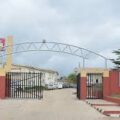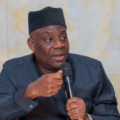British Boarding Schools Expand to Nigeria
Rich Nigerians have long sent their kids to elite British boarding schools, but some of those institutions are now opening campuses in the most populous country in Africa. Charterhouse opened a primary school in Lagos last year, and this September, Rugby School will also start offering secondary education. Other well-known institutions, like Millfield, Wellington College, and Harrow, are also looking into opportunities in Nigeria.
Of course, all of this comes at a cost to Nigerian parents, but historically, the country’s wealthy elite have sent their kids to the UK for secondary education because of the British curriculum’s rigor, prestige, and international opportunities.
A Parent’s Perspective on British Schools in Nigeria
Karima Oyede is a British-Nigerian management consultant whose son is in year 10 at Rugby in the UK but will be transferring to its Lagos school in September. “I’m actually excited about it,” she adds.
Due to the children’s education, her family has been planning to move to Nigeria for some time but hasn’t done so yet.
“Having the opportunity to experience the British system in his country of origin is the best of both worlds,” she states.
Balancing International Education and African Identity
African parents are proud to be giving their kids a global reputation, but they don’t want them to lose their African identity.
— Ijay Uwakwe, an educational consultant from Okoronkwo
Although there are numerous private schools in Nigeria, many parents, especially those who want to protect their children’s cultural identity, will be drawn to the country’s excellent, globally recognized education.
Ijay Uwakwe-Okoronkwo, the founder of the Nkuzhi Learning Foundation in Abuja, Nigeria, says, “African parents love the fact that they are giving their children international standing so they can compete with their counterparts in any other part of the world, but they don’t want their children to lose their African-ness.”
Cultural Concerns and Western Influence
The more laid-back, disrespectful attitude kids return with after attending school overseas is not always appreciated, according to the educational consultant who counsels parents and schools on international boarding options.
This cultural conundrum also affects the expanding discussion of LGBTQ concerns. In Nigeria, homosexuality is not openly discussed or encouraged, and same-sex partnerships and public shows of affection are prohibited.
The younger generation of British schools has embraced it. For instance, the Nigerian school does not fly a rainbow flag, whereas Charterhouse UK does.
Adapting British Schools to Nigerian Culture
According to Charterhouse Nigeria’s principal, John Todd, “We’re a British independent school but sitting firmly within Nigerian cultural needs.”
“There’s this huge concern about Western cultural views.” We understand that it’s a major concern for the parents here. Parents are concerned about UK schools for this reason. “I’m not making a judgment – it’s just the way it is.”
He acknowledges that British institutions in Nigeria are forced to “follow the law of the land,” and he goes on to say, “We are 100% compliant.”
Charterhouse acknowledges the strong religious ties of Nigeria and allows parents to bring their kids home from the boarding house for Sunday church services, provided they return by Monday morning.
Why British Schools Are Expanding to Nigeria
Prestigious British colleges are increasingly interested in establishing campuses in Nigeria for a number of reasons.
Africa is still relatively unexplored by foreign schools, in contrast to places like China and the Middle East.
“Nigeria is the gateway to Africa, and Africa is kind of the last continent for British schools to establish in,” says Mark Brooks, a UK Department for Business and Trade export champion.
He hosts yearly gatherings in Nigeria when parents and prospective students from roughly 20 British schools meet.
Nigeria’s Reputation for Academic Excellence
“Nigeria has an incredible reputation for producing driven, high-achieving students,” adds Brooks.
Over the years, I have brought hundreds of head teachers to Nigeria, and the UK is aware that we must give Nigeria serious consideration.
— Export champion Mark Brooks, Department of Business and Trade
“A Nigerian student serving as head boy or deputy head boy has recently occurred at every school I work with. After a year, a student may join the sixth form and become the head boy. Hundreds of head teachers have visited Nigeria under my leadership over the years, and the UK is aware that Nigeria must be taken seriously.”
Rising Costs of Studying in the UK
Since the price of transporting kids to the UK has skyrocketed, timing has also become crucial. The local currency is now worth 2,200 naira, compared to 500 naira to £1 just three years ago.
Furthermore, private school fees in the UK were recently subject to a 20% VAT increase by the Labour government.
Families must pay for extras like airfare for both students and visiting parents in addition to tuition.
The establishment of these schools in Nigeria greatly lessens the financial burden on families while preserving the same level of education.
For instance, Charterhouse UK charges annual fees of about £60,000 ($78,000), whereas its Lagos campus charges fees of about £15,000.
Cost-Saving Strategies for British Schools in Nigeria
“Our main classroom teachers are expatriates, but 90% of the staff are local,” states Mr. Todd.
In contrast to the UK, where labor is substantially more expensive, the school can drastically save costs by hiring locals for positions like assistant teachers, administration, finance, human resources, marketing, facilities, security, gardeners, drivers, PAs, and secretaries.
Impact on Nigeria’s Educational System
Nigeria already has a huge educational disparity, with many parents choosing to send their children to private schools of differing caliber. Instead of sending their kids to government schools, which are sometimes free but have underqualified teachers and frequent strikes, many parents find it difficult to afford the increased tuition.
Therefore, Nigeria’s educational system might not be significantly altered by the introduction of British schools.
Competition with Established Elite Schools
Established elite institutions like the British International School in Lagos and The Regent School in Abuja, which opened in the early 2000s, might be threatened by them, nevertheless.
For those who can afford the yearly tuition costs, which can amount to tens of thousands of dollars, these institutions have long been popular alternatives.
Collaboration and Future Prospects
“Rugby School Nigeria is coming also to support, develop, and learn from the schools currently in Nigeria,” adds Mr. Brooks, the school’s marketing coordinator.
“We are coming to help with partnerships as well, teacher training, and a whole range of initiatives.”

DOWNLOAD EXAMSCHOLARS CBT APP ON PLAYSTORE
DOWNLOAD EXAMSCHOLARS CBT APP ON APPLE STORE
DOWNLOAD EXAMSCHOLARS CBT APP ON WINDOWS
VISIT EXAMSCHOLARS.COM for more info







